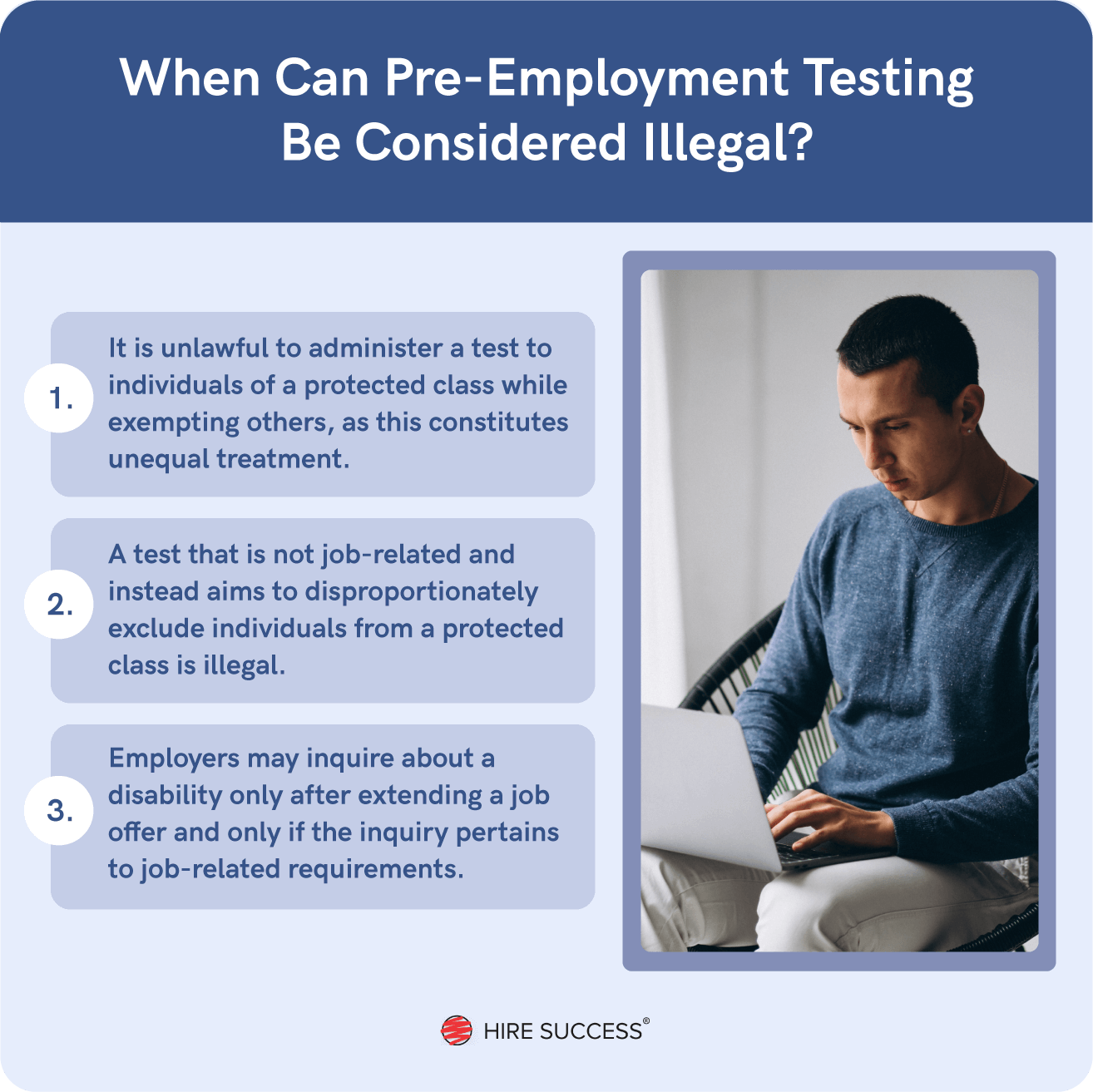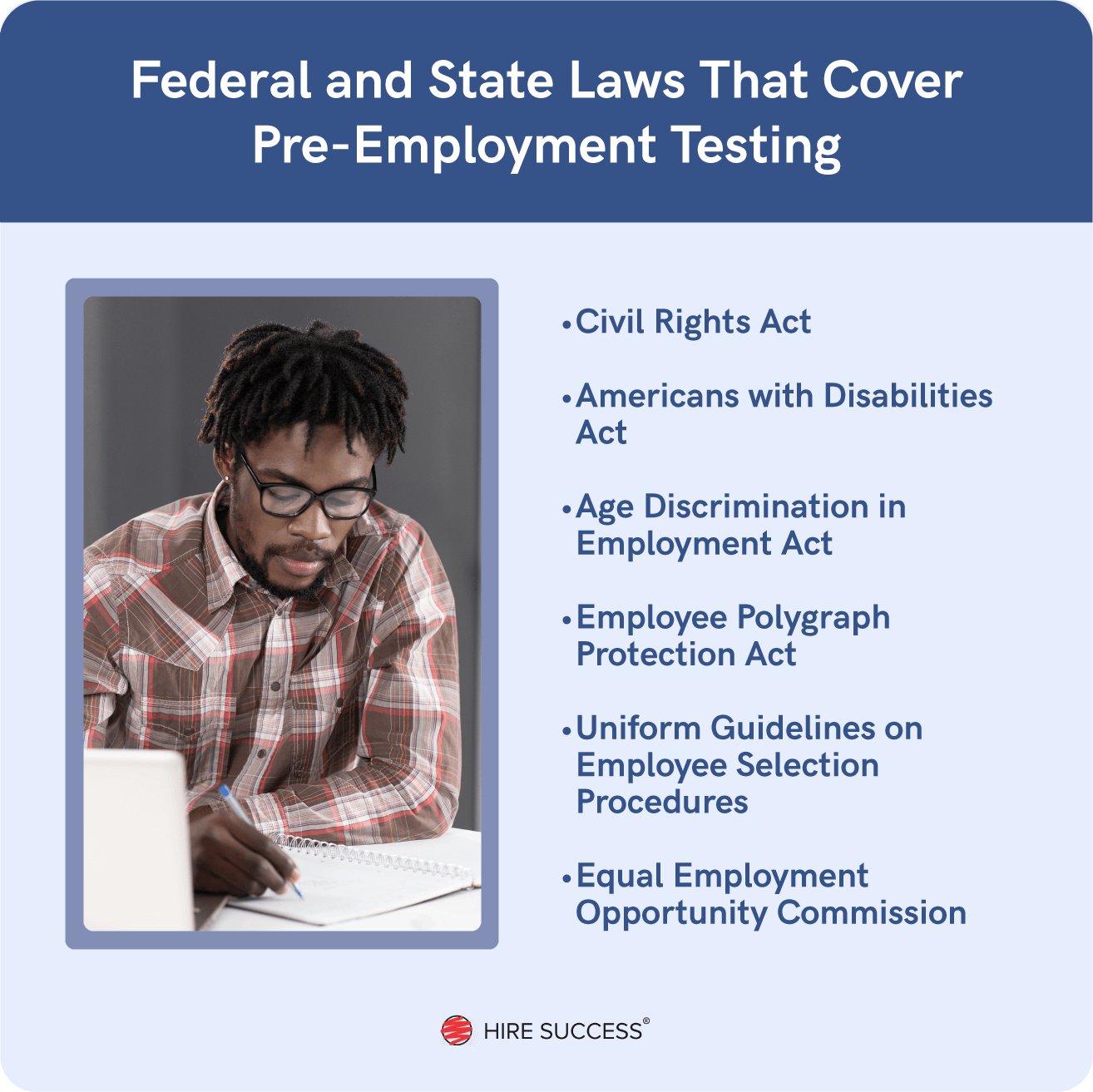Common types of pre-employment tests and their legal status
Let’s take a look at four types of employment tests that are commonly used, as well as some links to resources for further review.
Are skills and aptitude tests legal?
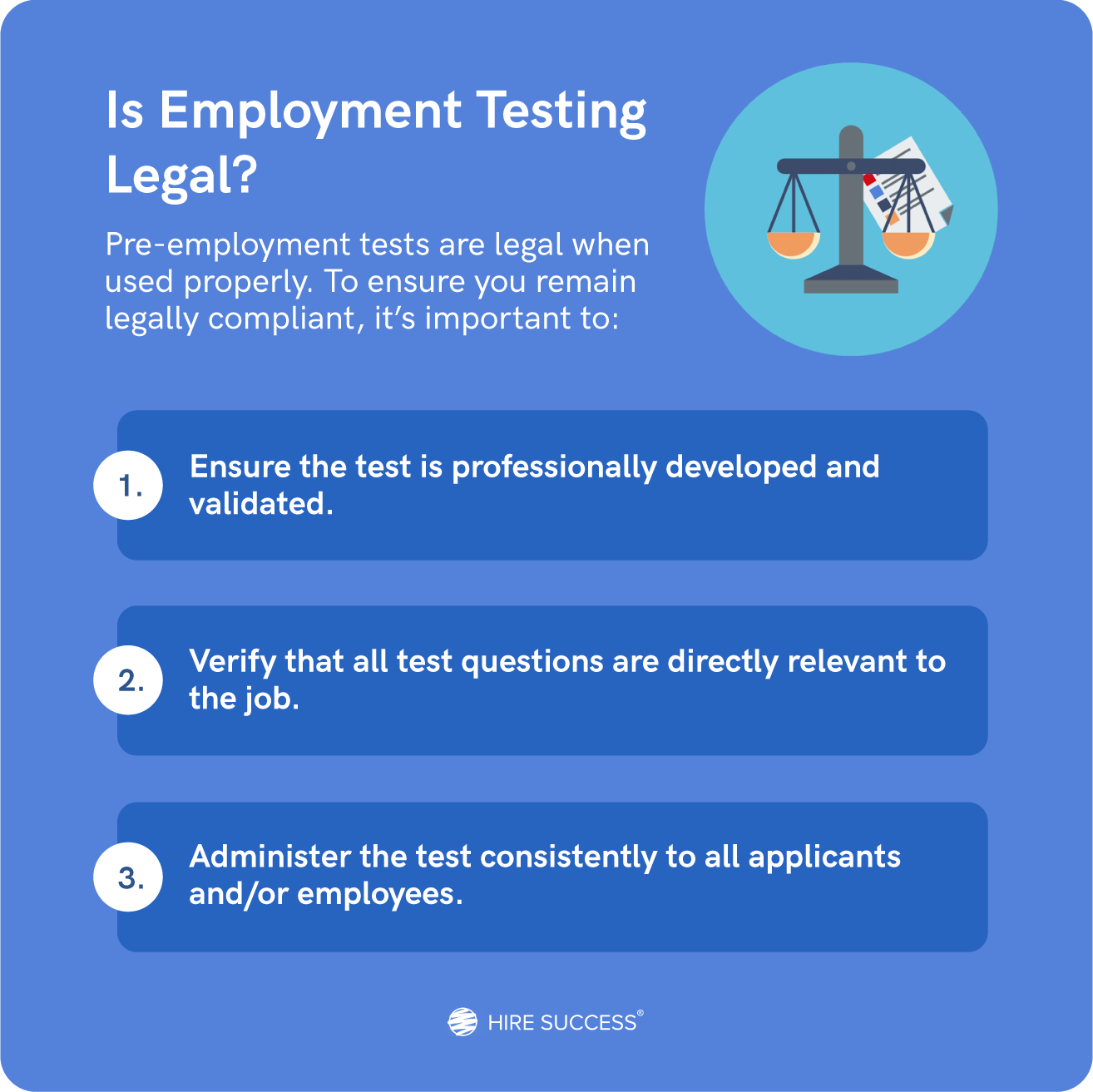
Aptitude and skill tests are one of the main types of pre-employment testing. Testing an applicant’s knowledge of a particular subject that pertains to the job for which they’re being considered is perfectly legal and, when applied properly, can be a valuable hiring tool.
However, be sure to consider the following before administering any of these tests:
-
Be sure the test is “professionally” developed.
Hire Success® Online Aptitude Tests have been professionally developed by one of our consultants who has a Doctorate in Education. If you’re considering using other tests, ask for the credentials of the person who developed the test.
You can read more in the link below about a Supreme Court decision requiring aptitude and IQ tests to be “professionally” developed (see GRIGGS v. DUKE POWER.)
-
Make sure all questions on the test are applicable to the job.
If some questions are not applicable, be sure to eliminate them from the scoring and do not base a hiring decision on the results of any non-applicable questions.
For example, if a sales skills assessment combines questions about “retail” sales and “outside” sales, and you're hiring someone for an outside sales position, you should not base your decision on the outcome of the “retail” questions unless they are applicable to the outside sales position. Otherwise, you run the risk of violating pre-employment testing laws and a candidate who did not get the position could have a legal basis on which to sue for discrimination.
Seek the advice of your legal counsel if you have questions, before administering this type of test.
-
Test ALL applicants and/or employees.
All applicants for a job should be tested in order to give everyone an equal opportunity to demonstrate their abilities. Testing only the few you’ve selected for final interviews could be considered discriminatory. If your reason for testing only a few applicants is to save money, remember that the price of the Hire Success® pre-employment testing system is extremely low, making it affordable to test all applicants.
→ Test aptitude
→ Assess job skills
Are IQ tests legal for employment testing?
Is it appropriate to give an IQ test as part of a job interview? It can be, but you may find that a professionally developed aptitude test does a better job of demonstrating a person’s ability and skills. Plus, with aptitude tests, it’s easier to demonstrate how and why the test is relevant and applicable to the job you’re hiring for.
Examples of legal issues with IQ testing
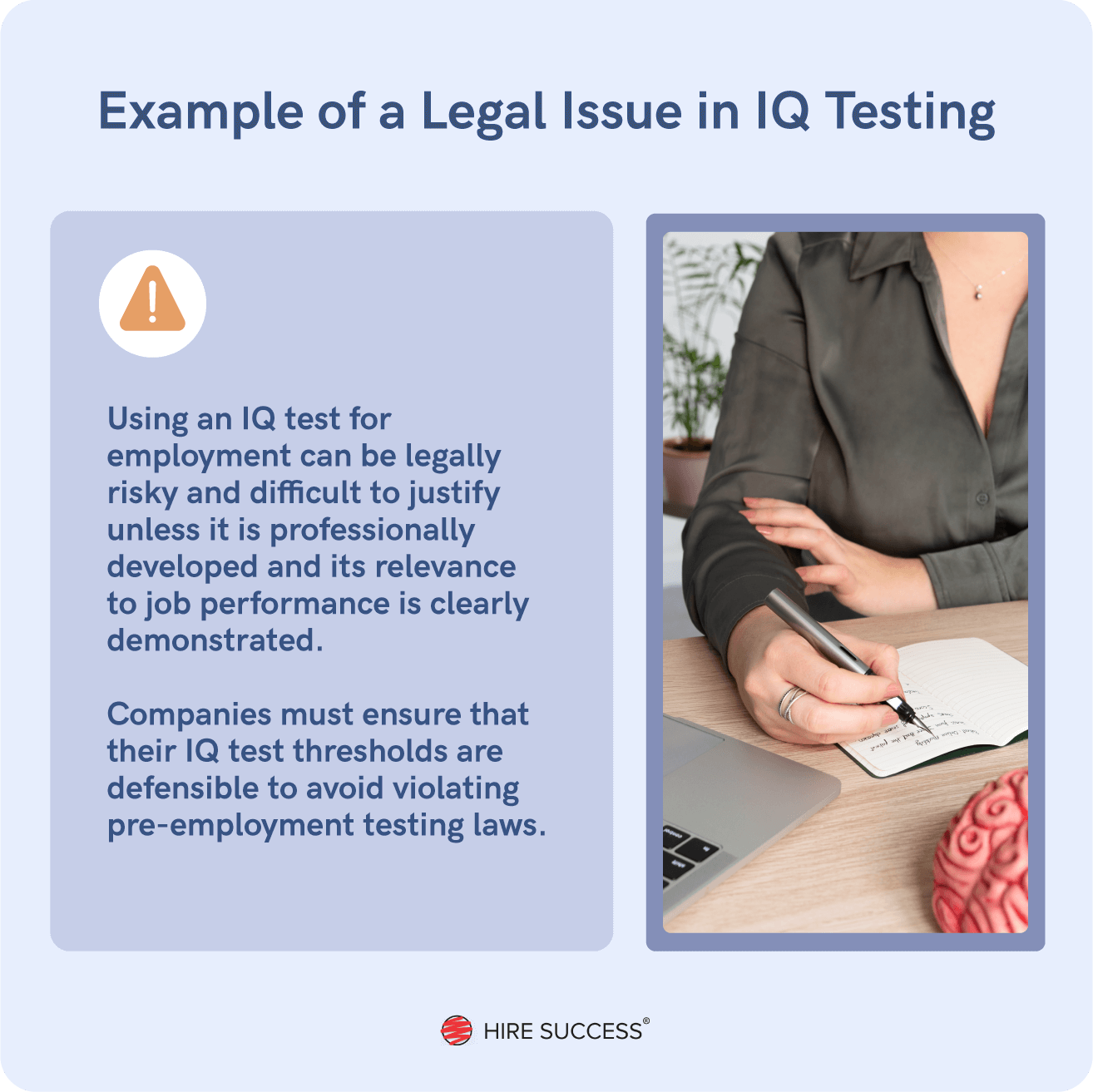
Many companies rely on using an IQ test that has not been professionally developed for employment, and they have not demonstrated that only people with an IQ above a certain level can be successful in the job.
Before administering any IQ test, you should make sure your legal counsel reviews the test, you know who developed it, you understand how it’s being applied, and you know how the results will be used to screen candidates to ensure you don’t violate any pre-employment testing laws.
Overall, the main issue when administering an IQ test for employment is the defensibility of the "threshold" you set for hire/not-hire.
For example, if you state that an applicant must have an IQ of 108, can you demonstrate how an applicant with an IQ of 107 is not capable of doing the job, but a person with an IQ of 108 has what it takes to succeed? It would be extremely difficult. This is one important reason why many companies will not use an IQ test for employment.
→ Create your own employment test instead
Are personality tests legal for hiring?
Personality tests are legal when properly used as part of a hiring process. In fact, they are an essential tool in the processes of employee selection and employee development. A personality profile test is truly a decision support tool that’s as essential as a resumé.
Are personality tests legal? Yes, but just as with aptitude tests, legality of personality tests in the workplace involves understanding which traits are both applicable to the job and can be shown to make a difference in a particular job for which the applicant or employee is being considered.
Examples of cases when personality tests may be illegal
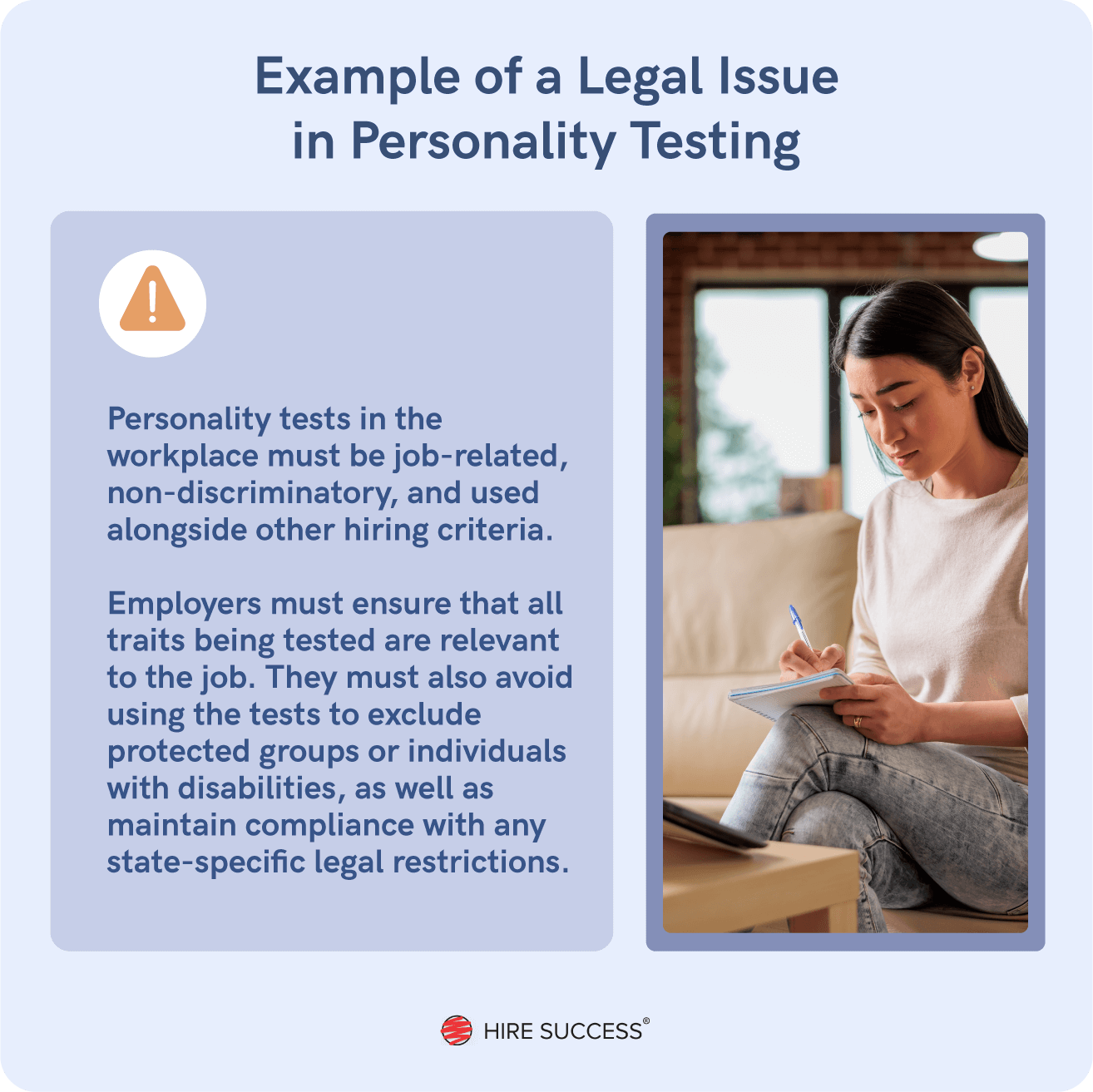
Significant case law addresses the legality of personality tests in the workplace. You will need to prove the personality traits you are testing for are relevant to job performance. For example, testing for persuasiveness makes sense for a sales role, but not for custodial candidates. It is illegal to use personality testing to screen out protected groups and people with disabilities.
Furthermore, personality tests cannot be used as the sole factor in making a hiring decision. Lastly, some states impose additional restrictions, so it is important to talk to your legal counsel.
→ Assess personality
Is it illegal to give job candidates integrity tests?
Integrity tests are not illegal if used properly. When professionally developed and fairly administered, integrity tests are not discriminatory. When employees have access to cash, trade secrets, and sensitive systems and data, these kinds of tests are highly recommended to help ensure you are hiring people who can be trusted.
Potential legal concerns with integrity testing
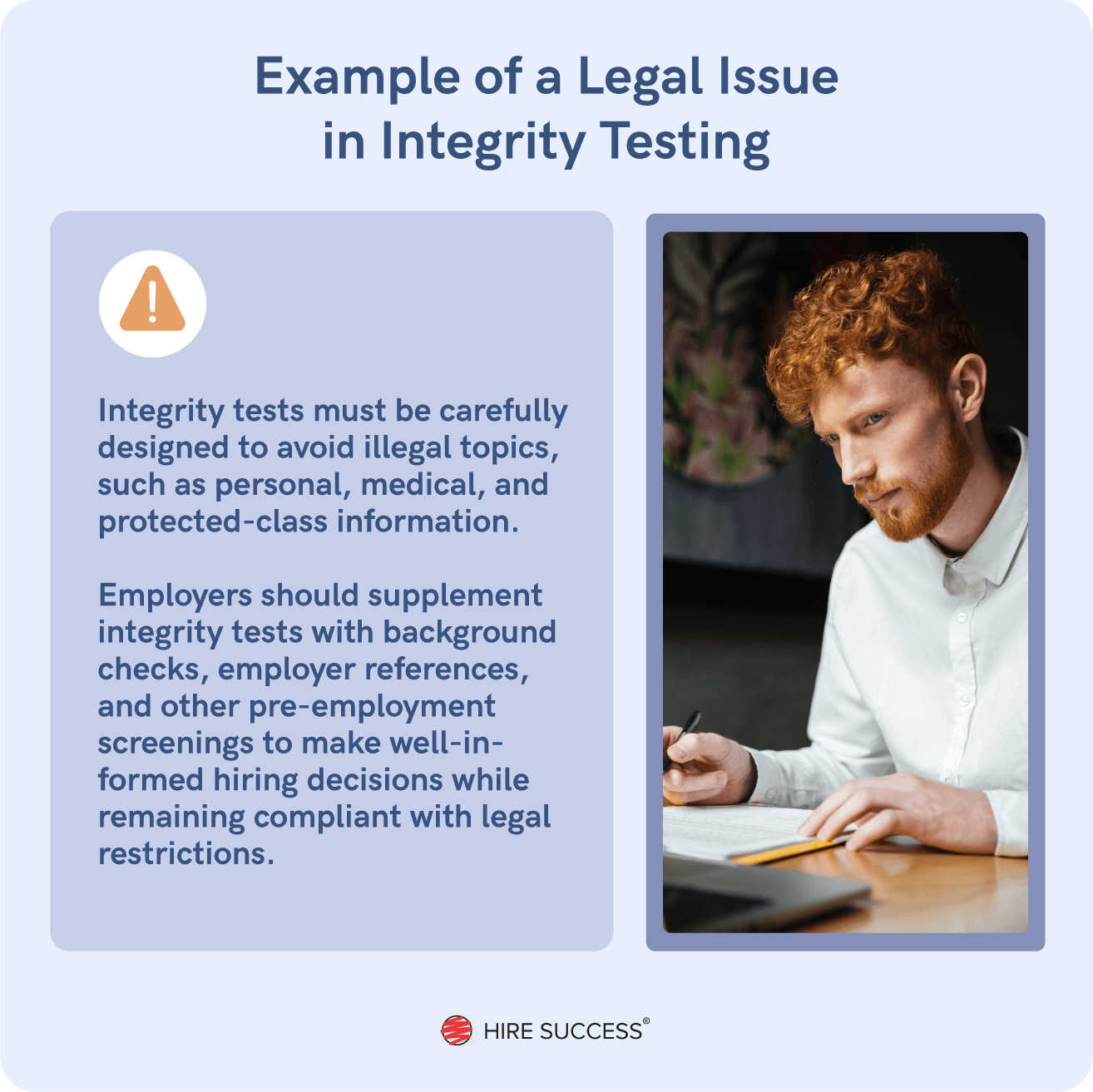
Integrity tests need to be designed to avoid getting into illegal topics. Invasive questions about a candidate’s personal life are out of bounds, as are questions about mental health and medical conditions.
Do not ask about religion, politics, or sexual orientation. You cannot ask about financial and credit history, general criminal history, or drug and alcohol use. Carefully worded questions can give you insights into these areas without running counter to legal restrictions.
Additionally, you should not rely exclusively on integrity tests when making any hiring decision. Check with every past employer, as well as every educational institution listed on a resumé, and do a criminal background check. Drug testing is generally legal and other types of pre-employment testing should also be considered as screening tools to help give you a more accurate picture of your candidate’s potential for success.
→ Measure integrity

